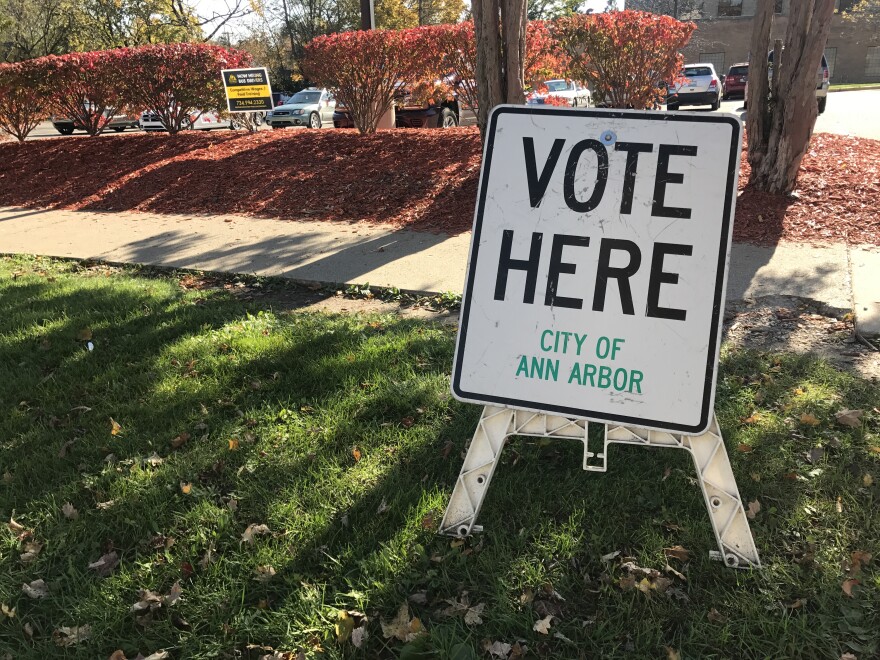Last week, the Michigan legislature adopted the minimum wage increase initiative, officially taking it off the November ballot. The legislature had previously adopted two other initiatives, paid sick leave and repealing the prevailing wage.
Now, only three proposals will appear on the November ballot, and the state elections board has finalized the language for all three.
Here's what the proposals will look like when voters head to the polls in November:
Proposal 1: Legalize recreational marijuana
A proposed initiated law to authorize and legalize possession, use and cultivation of marijuana products by individuals who are at least 21 years of age and older, and commercial sales of marijuana through state-licensed retailers. This proposal would: Allow individuals 21 and older to purchase, possess and use marijuana and marijuana-infused edibles, and grow up to 12 marijuana plants for personal consumption. Impose a 10-ounce limit for marijuana kept at residences and require amounts over 2.5 ounces to be secured in locked containers. Create a state licensing system for marijuana businesses and allow municipalities to ban or restrict them. Permit retail sales of marijuana and edibles subject to a 10% excise tax, dedicated to implementation costs, clinical trials, schools, roads, and municipalities where marijuana businesses are located. Change several current violations from crimes to civil infractions.
If passed, Proposal 1 would make Michigan the 10th state to legalize recreational marijuana.
The proposal is lead by the group Coalition to Regulate Marijuana Like Alcohol, and it's opposed by the group Healthy and Productive Michigan, which is backed by the Michigan Chamber of Commerce.
Two of Michigan's three gubernatorial candidates support the ballot: Democrat Gretchen Whitmer and Libertarian Bill Gelineau. Republican candidate Bill Schuette disapproves of legalizing recreational marijuana, but says if the proposal passes, he will "respect the will of the voters."
Proposal 2: Establish an independent citizens redistricting commission
A proposal to amend the Michigan Constitution to create an Independent Citizens Redistricting Commission. If adopted, this amendment would transfer the authority to draw Congressional and State Legislative district lines from the Legislature and Governor to the Independent Commission. The selection process will be administered by the Secretary of State. Thirteen commissioners will be randomly selected from a pool of registered voters, and consist of four members who self-identify with each of the two major political parties, and five non-affiliated, independent members. Current and former partisan elected officials, lobbyists, party officers and their employees are not eligible to serve. The proposal is to be voted in the November 6, 2018 General Election.
Proposal 2 would amend Sections 1, 2, 3, 4, 5, and 6 of Article IV, Sections 1, 2, and 4 of Article V, and Sections 1 and 4 of Article VI of the Michigan Constitution.
The lead-up to the proposal's inclusion on the ballot was not without controversy. A group funded by the Michigan Chamber of Commerce called Citizens Protecting Michigan’s Constitution filed a lawsuit claiming the proposal was unconstitutional. That legal challenge was rejected by the state Court of Appeals and later by the state Supreme Court.
Proposal 3: Voting Rights Policies Initiative
A proposal to amend the Michigan Constitution of 1963 by amending Article II, Section 4. If adopted the proposal would provide citizens qualified to vote in Michigan with the following rights: to vote a secret ballot; for military and overseas voters to be sent a ballot 45 days before an election; to vote straight party on all partisan general election ballots; to be automatically registered to vote when obtaining a driver’s license or personal identification card from the Secretary of State, unless the person declines; to register to vote by mail on or before the 15th day before an election; to register to vote in person at any time with proof of residency; to vote an absentee ballot, by mail or in person, without giving a reason; and to have election results audited to ensure the accuracy of elections. This proposal is to be voted on at the November 6, 2018 general election.
The Voting Rights Policies Initiative would amend Section 4 of Article II of the state constitution.
The initiative is lead by the group Promote the Vote, and backed by the ACLU and the League of Women Voters of Michigan.
The 2018 election is Tuesday, November 6.






